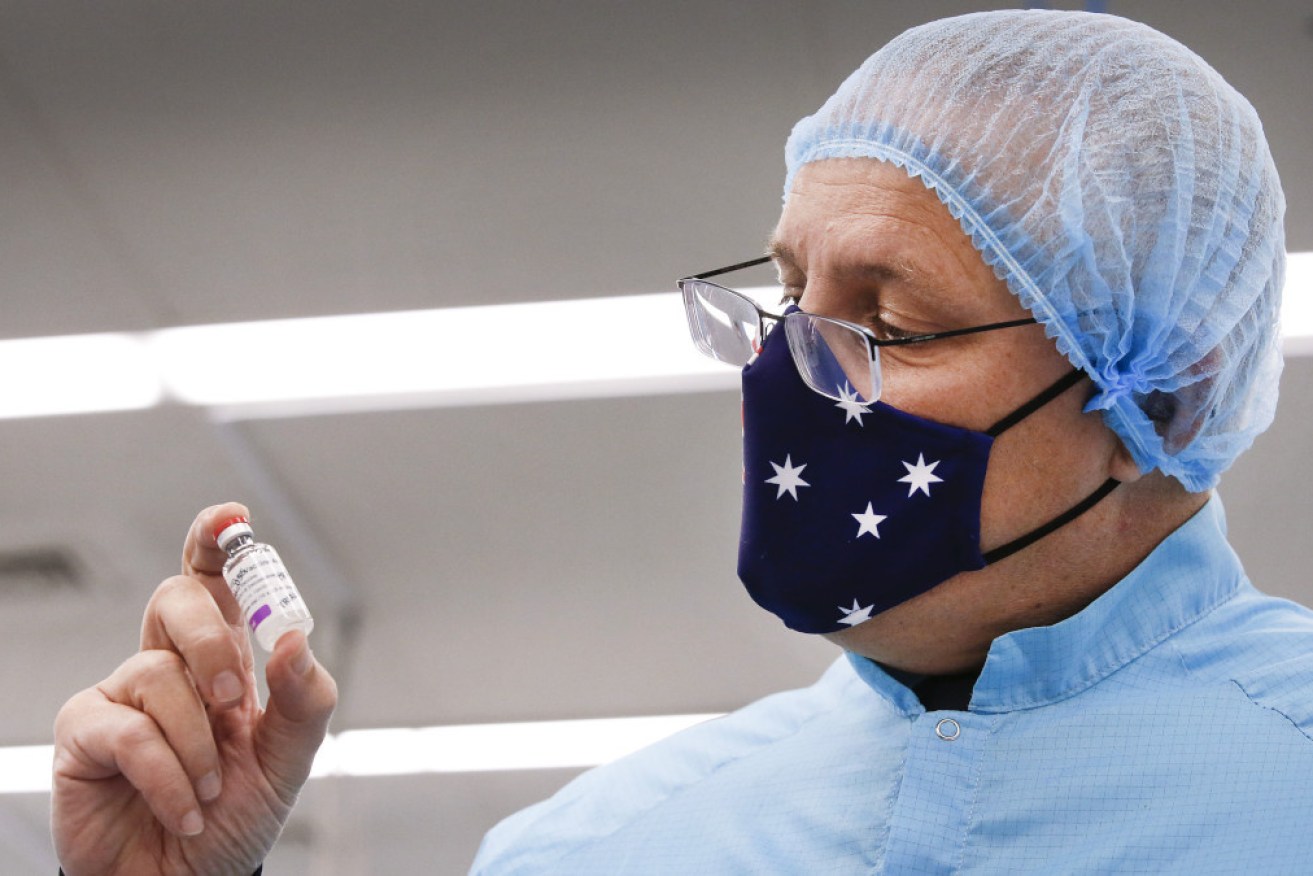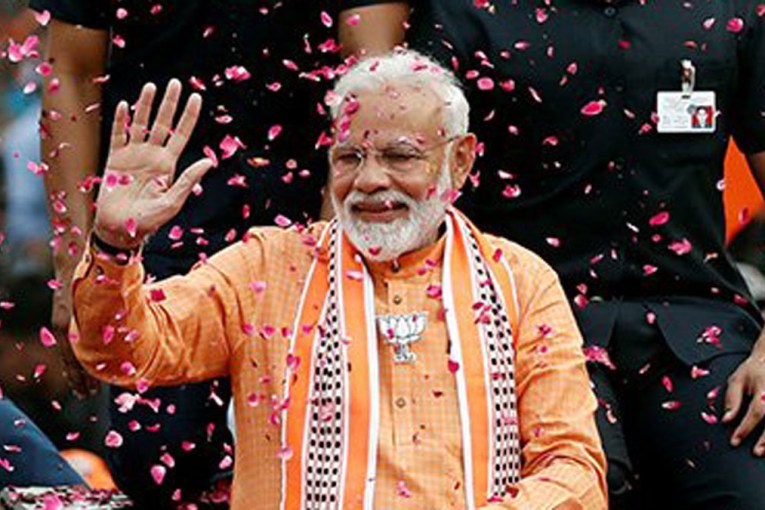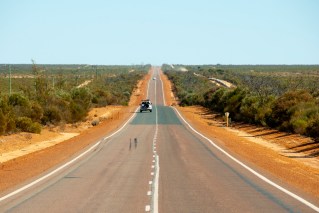How the ‘recalibrated’ vaccine rollout will work


Scott Morrison has announced some changes to the country's vaccine rollout schedule. Photo: AAP
Scott Morrison hopes a Navy commander and a truce with state governments will pep up Australia’s sluggish COVID vaccine rollout, under a “recalibration” agreed to by national cabinet.
At the second of the national cabinet’s “war footing” meetings on Thursday, state and territory leaders made a number of decisions, swearing on them to get the rollout on track.
Completing a major backflip from the initial rollout, the Pfizer vaccine will now be almost entirely restricted to those under 50, with older people to only receive AstraZeneca.
This will require more specialist Pfizer hubs, and more people in the crucial 50 to 70 age bracket will be offered a jab slightly earlier than planned.
Some 1.78 million Australians have now been vaccinated, but many millions more are still anxiously waiting.
So with enormous scrutiny over the fate of the rollout, what did national cabinet actually agree on?
Pfizer for younger people, AstraZeneca for older
The federal government announced two weeks ago that, due to incredibly rare instances of blood clot complications in younger people receiving the AstraZeneca vaccine, those under 50 would from then on be recommended to get the Pfizer jab.
It was a radical change to earlier plans, which had been to immunise older and more at-risk populations with the higher efficacy Pfizer jab.

Pfizer’s jab will be kept for under-50s. Photo: AAP
On Thursday, health department secretary Brendan Murphy said Australia now had “two vaccines divided by age”; Pfizer for under-50s, and AstraZeneca for over-50s.
“At this stage we will not be making Pfizer available to those 50 and over,” he said.
“Pfizer vaccine is the vaccine for those under 50, with a few agreed exceptions.”
Those exceptions, Mr Morrison said, would make Pfizer available for people in residential aged and disability care, in remote locations, and for quarantine and frontline workers.
“We have to finish off residential aged care. It’s nearly finished. Only a few more weeks to go,” Professor Murphy said.
The PM said his elderly mother was among those to get the AstraZeneca vaccine, receiving her first jab on Thursday.
More vaccine hubs
Pfizer’s vaccine, which must be kept at very cold temperatures in special storage, has been distributed in a small number of expert “hubs”.
This is in contrast to AstraZeneca, which can be more simply stored at doctors’ clinics.
The change to give Pfizer to more people means more hubs are needed.

Mr Morrison got the Pfizer vaccine. Millions of Australians are still waiting. Photo: AAP
Professor Murphy gave a presentation that outlined a “progressive geographical expansion of state Pfizer clinics” to ensure it can be accessed by new groups of younger people.
“The first ministers have agreed they will open up all of their state Pfizer clinics equally to every single Australian currently eligible,” Professor Murphy said.
“That will need to expand both in geography and size, depending on the available Pfizer doses which are coming in, and which we hope to increase in coming weeks.”
A list of these new clinics hasn’t been released yet.
Earlier AstraZeneca access for over-50s
Australia was relying on AstraZeneca as its “workhorse” vaccine, with up to one million doses per week to be made at Melbourne’s CSL facility.
The switch to restrict under-50s from getting that jab means the government might end up with more AstraZeneca on its hands than planned, leading to expanded eligibility for people aged 50 and up.
Australia is only technically up to Phase 1b of the rollout, which includes people aged over 70, Aboriginal people aged over 55, and workers in critical or high-risk jobs like health, border and quarantine, police and ambulance.
Those aged 50 and up weren’t originally planned to get access to a vaccine until Phase 2a, expected to start some time mid-year, but that has now been brought forward a touch.
Mr Morrison said GP respiratory clinics will start offering the AstraZeneca jab to over-50s from May 3, and general GP clinics from May 17.
Navy shakeup
To manage the new plans, Health Minister Greg Hunt this week announced Navy Commodore Eric Young would step in as operations co-ordinator for the Vaccine Operations Centre.
Commodore Young said his job was to “continue to refine and improve our processes, to make sure that we are getting better”.
His national TV debut came just days after Mr Morrison theatrically said the vaccine rollout needed to go on a “war footing” with two national cabinet meetings per week.
However, after just the first week of bi-weekly meetings, Mr Morrison said on Thursday the national cabinet wouldn’t convene again until next Friday.
“There isn’t a need to meet earlier than that,” he said, just days after saying two meetings every week was necessary.
No mass vaccination centres yet
Despite talk of federal-state collaboration on more mass vaccination clinics, like those in the United States at stadiums and car parks, no such announcement came on Thursday.
No new timetables
What wasn’t announced on Thursday, however, was any new timetable for vaccinating Australians.
The federal government has been heavily criticised for failing to meet its self-imposed deadlines of vaccinating four million people by March, and later stepped away from a commitment to fully vaccinate the population by October.
When that last mark was disowned recently, in a Facebook post by Mr Morrison, he said the federal government had “not set, nor has any plans to set any new targets for completing first doses”.
In a Senate hearing on Tuesday, Professor Murphy said, “We’re not in a position to give an updated time on when vaccinations will be completed”.
He said the health department was doing modelling on when vaccination milestones could be hit, but wouldn’t share that information just yet.
“Some predictions would be in the data that might be shared with national cabinet,” Professor Murphy said on Tuesday.
“We are looking at a range of scenarios, but there’s no certainty around any of those outcomes.”
At this stage, it’s still unclear exactly when all Australians can expect to be vaccinated.








